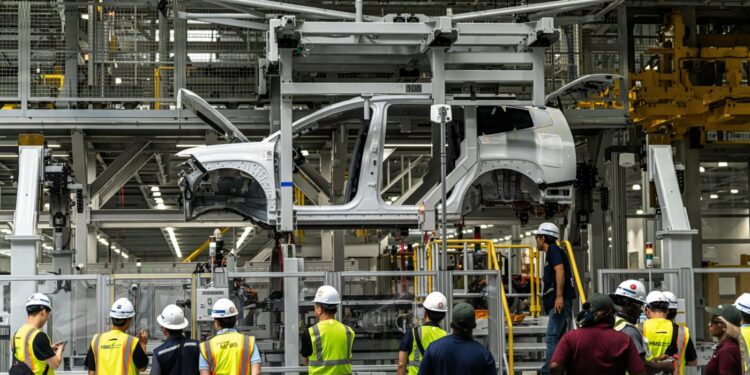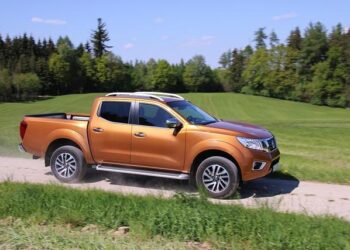As reported by the Korea Times, the impending tariffs imposed by the US government on imported cars are the background to the plans. According to industry observers, the Hyundai Motor Group has been preparing for such tariffs since Trump’s re-election and wants to increase the proportion of vehicles sold directly from US factories.
Hyundai has only been building the Ioniq 5 for the US market at HMGMA since October 2024. In November 2024, the carmaker confirmed that it would also build the large Ioniq 9 there. However, the plant will also manufacture electric cars from the Group brands Kia and Genesis. The Ioniq 5 is based on the E-GMP electric platform, which is also used by Kia and Genesis. It is thus likely that further models will follow.
Last week, there were indications that the Hyundai Motor Group intends to build more electric cars in the US. At the time, the portal Business Korea wrote, citing insiders, that the supplier SK Battery America was scaling up its production and would manufacture batteries for Hyundai and Kia electric cars on nine of twelve production lines from March. SK Battery America is the US subsidiary of South Korean cell manufacturer SK On, which operates two plants in Georgia.
However, Hyundai not only wants to increase EV production in the US. As the Korea Times writes, the plants in Alabama and Georgia will also be expanded “to elevate the group’s total U.S. production capacity.” The two factories have a capacity of 356,100 and 340,000 vehicles per year, respectively. It is not clear from the report to what level production will be ramped up.
Hyundai and Kia sold around 1.7 million vehicles in the US last year. However, only around 40 per cent of these were also built in the United States – the majority were imported from South Korean plants. These vehicles will likely be affected by the threatened tariffs – as reported, US President Donald Trump will not make a more detailed statement until 2 April.
If car imports from South Korea are also affected by the US tariffs, this would also affect the US car manufacturer General Motors. With the GM Korea unit, General Motors also operates a car manufacturer in South Korea – the former Daewoo Motors. However, GM Korea supplies 84 per cent of its production to the United States.
According to the Korea Times, South Korean automotive suppliers such as Hyundai Mobis are also looking into expanding their US production. At least Hyundai Mobis Executive Vice President Axel Maschka is said to have expressed this view in January on the fringes of the CES. However, not all representatives of the South Korean automotive industry consider a short-term relocation of production due to the tariffs the right move. “Relocating production facilities requires substantial costs and a long-term process,” the Korea Times quotes an industry representative who wished to remain anonymous. “Unless a company has sufficient financial resources or a high market share in the US, relocation may not be necessary.”
koreatimes.co.kr
Source link : http://www.bing.com/news/apiclick.aspx?ref=FexRss&aid=&tid=67b7d3b95e8a4b999a71a274c86aa838&url=https%3A%2F%2Fwww.electrive.com%2F2025%2F02%2F20%2Fbecause-of-us-tariffs-hyundai-considers-expansion-of-us-electric-car-plant%2F&c=9221592669077179716&mkt=en-us
Author :
Publish date : 2025-02-20 12:09:00
Copyright for syndicated content belongs to the linked Source.











